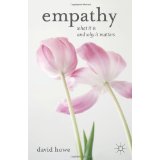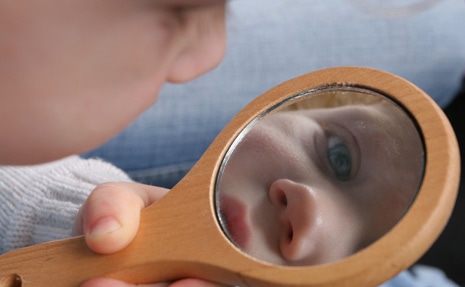David Howe – author of Empathy: What it is and why it matters – joins Lou Agosta on A Rumor of Empathy for a conversation about empathy. David begins with the idea that empathy humanizes people and their relationships. Empathy is about our shared humanity.
This includes but is bigger than the idea that an experience or feeling is communicated for the one person to the other. Without the other person, one loses oneâs humanity. One is left without vitality, aliveness, or energy. In short, needs the other person to be fully alive.
When all is said and done, empathy makes us better and should be promoted in child, adults, and community. It is not that anyone else ever thought that empathy made us worse as persons. That would be silly. Yet Heinz Kohut emphasized the aspect of empathy as a scientific form of data gathering about other persons that is value neutral and precisely ambiguous as to its social relevance. As Kohut famously said, empathy is âvicarious introspection,â in which one has a vicarious experience of the otherâs feeling as if one were in the theatre or cinema. Thus, accordingly empathy could be mis-used as exemplified by the âempathicâ Nazi who used it the better to control, dominate, and manipulate the would-be victims. Such misfirings and misuses or empathy remain a risk â and a point of debate â and presumably motivate the need for the explicit development of positive empathy in children, adults, and the community. This raises the question of whether empathy can be taught at all. Howe definitely advocates trying. My thought in this regards runs along lines sketched out by Carl Rogers about psychotherapy in general. With a few exceptions, people are naturally empathic and have to be inhibited, limited, and constrained. Much of education teaches compliance, rule following, and conformity, not necessarily cooperation and individualism. Therefore, the âtrainingâ in adults consists in removing the inhibitions towards openness and communication, allowing the empathic tendencies to resume their natural unfolding and development. Resistance to empathy may seem counter-intuitive, yet is pervasive and a source of resignation and cynicism. In the cases of children, presumably education should be attentive the ways empathy is inhibited and suppressed in order to produce conformity and compliance where the latter are not really needed. By all means, keep oneâs hands to oneself and respect boundaries. But be open to empathy in navigating across the boundaries between self and other in a way consistent with integrity and completeness. Speaking personally as the author of three books on empathy, this is the book that I wish I had written. I hasten to add that my own works are excellent and everyone should read them, too, but Howe provides an accessible read is also rigorous and that will be relevant to a general audience. When all is said and done, when all the diagnostic categories are attached and philosophical arguments completed, in empathy, one is simply in the presence of another human being.
Replay for this episode of “A Rumor of Empathy” is now Available on VoiceAmerica Empowerment Channel.






